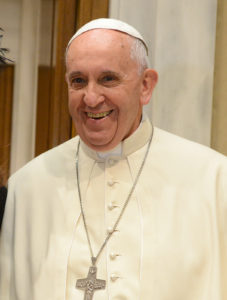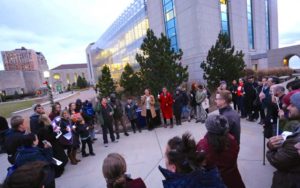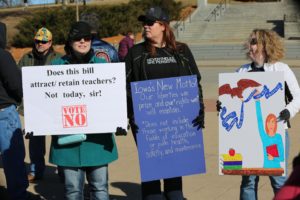Benign Neglect
The Working Catholic
by Bill Droel
Nearly every business leader agrees with the idea of corporate responsibility, said Stefano Zamagni at a Catholic Social Tradition conference held at University of Notre Dame late this March. To the extent that they know about Catholic doctrine, every Catholic business leader accepts our social doctrine. It would be the rare executive or board trustee who says, “I oppose corporate responsibility.” Or the rare Catholic in business who says, “I dissent from Catholic doctrine.”
However, behavior is different from language, continued Zamagni, who teaches at University of Bologna and who advises the Vatican. Many companies and executives (with exceptions) practice “moral disengagement.” They know how to neglect or turn off true moral standards. In other words, “they know how to make excuses,” said Zamagni.
The default position for business is utilitarianism or simple efficiency. A decision is proper if at the end of each day (or at the end of the fiscal year), that decision has produced more good than bad. Good decisions are those that create the greatest good for the greatest number of people.
“Utilitarianism is not an economic theory,” said Zamagni. It is not an objective morality. A business leader who uses this default method presumes that she can mathematically calculate good and bad outcomes. She brings her subjective opinions to a moral matter.
Here is an example. According to our 1994 Catechism of the Catholic Church, a just wage cannot merely be an “agreement between the parties,” between the employer and employee. Such an agreement, even when signed by the employee, “is not sufficient to justify morally the amount to be received in wages.”
Oh come on, many Catholic businesspeople will moan. The employee exercised freedom of choice. The agreement is binding. Not so fast, said Zamagni. In many situations, including in the restaurant industry or at a bank, the employee cannot freely consent to the consequences of the pay rate because the wage structure rules were made by someone else. Maybe it wasn’t the manager of this or that restaurant; maybe not the local bank manager. But someone else (a multitude of others) brought their subjective opinion about outcomes to the wage structure.
The justice of a wage must be objectively determined, the Catechism says. Even within “the provisions of civil law,” employers can be morally guilty of exploitation in paying less than a family wage.
Here is a second example of moral disengagement. A religious order sponsors a Catholic institution, administered by a board and some executives. None of these people would ever say, “We don’t believe in Catholic doctrine.” Now, let’s say, some employees within the institution express interest in a union. Many of the leaders of that institution suddenly express a negative opinion about unions: “The Catholic doctrine is fine, but the union you are considering is not a proper fit.” Or: “When Pope/Saint John Paul II (1920-2005) devoted an entire encyclical to labor relations, he meant Poland not the United States.” Or: “Our religious order supports workers in Latin America but we know best when it comes to our students or our patients in the United States.” Those leaders (who are exemplary people in their private life) know how to, in Zamagni’s phrase, “turn off deterrents” and assert their calculated yet subjective opinion.
Catholic moral living is not easy because it is not based on what one feels or one assumes or one calculates. It is based on God’s objective revelation—which admittedly has to be applied with prudence in difficult situations.
For more on the Notre Dame conference, check out its Center for Social Concerns (www.socialconcerns.nd.edu).
Droel edits a free newsletter on faith and work for NCL (PO Box 291102, Chicago, IL 60629)




